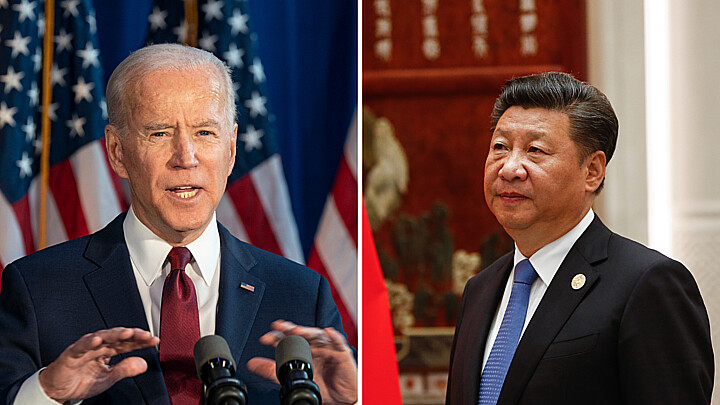Business
What is at stake with Mexico’s energy reform?
Opposing groups say the measures will scare away private investment, while the government assures that its plan "suits the people"
January 11, 2022 4:31pm
Updated: January 12, 2022 5:19pm
Mexican President Andrés Manuel López Obrador announced on October 1 that he had sent a proposal to Congress to reform the country's energy sector.
The initiative proposes to amend Articles 25, 27, and 28 of the Mexican Constitution to convert the current state-owned energy company Comisión Federal de Electricidad (CFE) into an organization with "its own legal personality" that would "produce and dispatch 56% of the energy generated in the country."
The reform would be achieved through two actions: First, CFE subsidiaries would be disbanded to form an organization that would generate, distribute and manage electricity in Mexico. Second, private companies would only be allowed to participate in up to 46% of the market.
Along with the changes to the CFE, the initiative considers dismantling two regulatory bodies: the National Hydrocarbons Commission (CNH) and the Energy Regulatory Commission (CRE). This would allow the CFE to operate more efficiently and stop benefiting private producers, according to the Secretary of the Interior, Adán Augusto López.
The Mexican President's proposal also includes a measure that would not allow strategic minerals, such as lithium, to be concessioned to private companies. The State would assume the tasks of exploration and production.
"The lithium in the subsoil of our territory belongs to Mexicans," said López Obrador when presenting the energy reform at a press conference.
The president also explained that the concessions granted for the exploitation of other minerals, such as gold and silver, would continue, but cannot be used for the production and exploitation of lithium.
Criticisms to the reform
Groups that oppose this reform claim that the proposed measures will scare away private investment. However, the government claims that its plan "is in the best interest of the people."
The proposal partially reverses the market liberalization approved in 2013, since the CFE would now control the majority of electricity generation. Currently, the state-owned company operates 38% of the Mexican market, according to official figures.
This change has generated rejection from specialists, congressmen, and business groups in the United States. Days after the reform proposal was announced, the rating agency Moody's warned that the changes reduce operational transparency, discourage private investment in the market, and could increase the cost of energy for users.
Moody's also noted that the dismantling of the CNH and the CRE would affect investor confidence because it would eliminate the institutional framework upon which the Mexican energy sector currently operates.
Several U.S. Republican lawmakers, including Ted Cruz, August Pfluger, John Cornyn, and Tony Gonzales, plus Democrat Henry Cuellar, have called on Biden's administration to pressure the Mexican government to stop the initiative, claiming that it violates the North American trade agreement, the T-MEC, and disfavors U.S. investments in Mexico.
Others warn that this initiative implies a setback in the transition towards clean energy in Mexico, the second-largest economy in Latin America.
Organizations such as Greenpeace, the Mexico Climate Initiative, and the Mexican Center for Environmental Law, among others, say the reform will further delay compliance with international commitments such as the Paris Climate agreement.
By having to generate more energy, the CFE could resort to burning more coal and fuel oil (a common residue from refined crude oil) to meet the electricity demand.
Furthermore, the reform would increase Mexico's exposure to international natural gas prices and availability. According to the Ministry of Energy, fossil fuels accounted for approximately 74% of the country's electricity generation in 2020. Of that percentage, natural gas accounted for around 81%.
Due to the polar vortex in February 2021 that caused a natural gas supply deficit in Texas, increases in gas prices generated cost overruns of U.S. $2.5 billion for the CFE, half of which were subsidized by the Mexican government.










